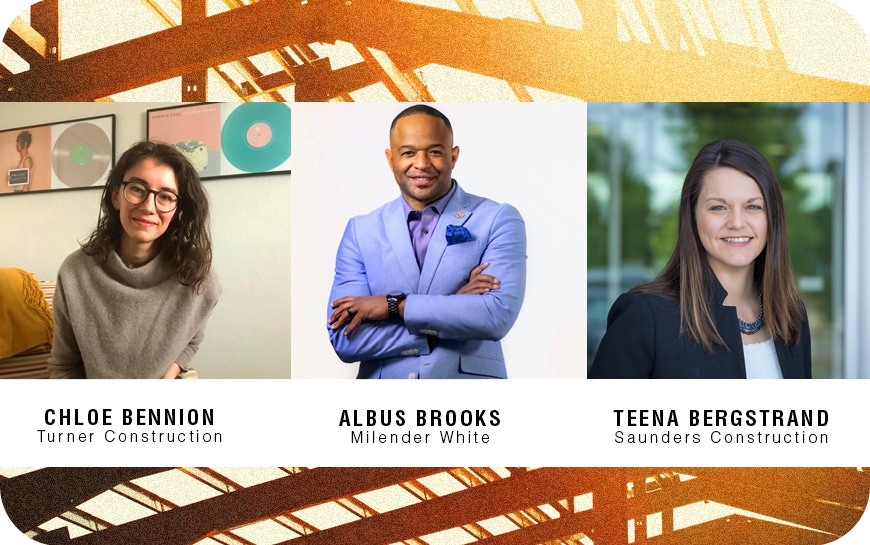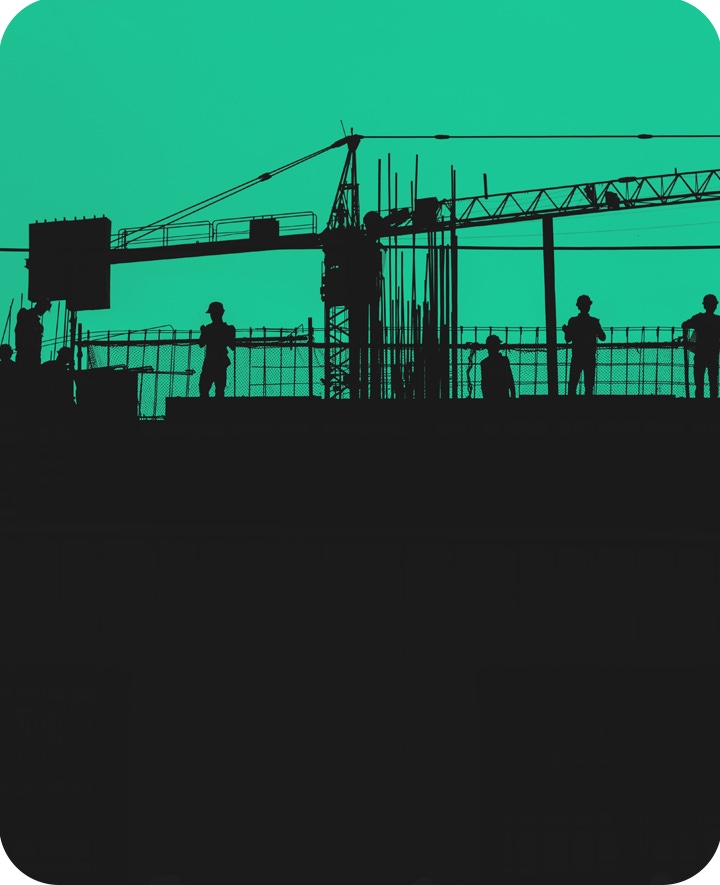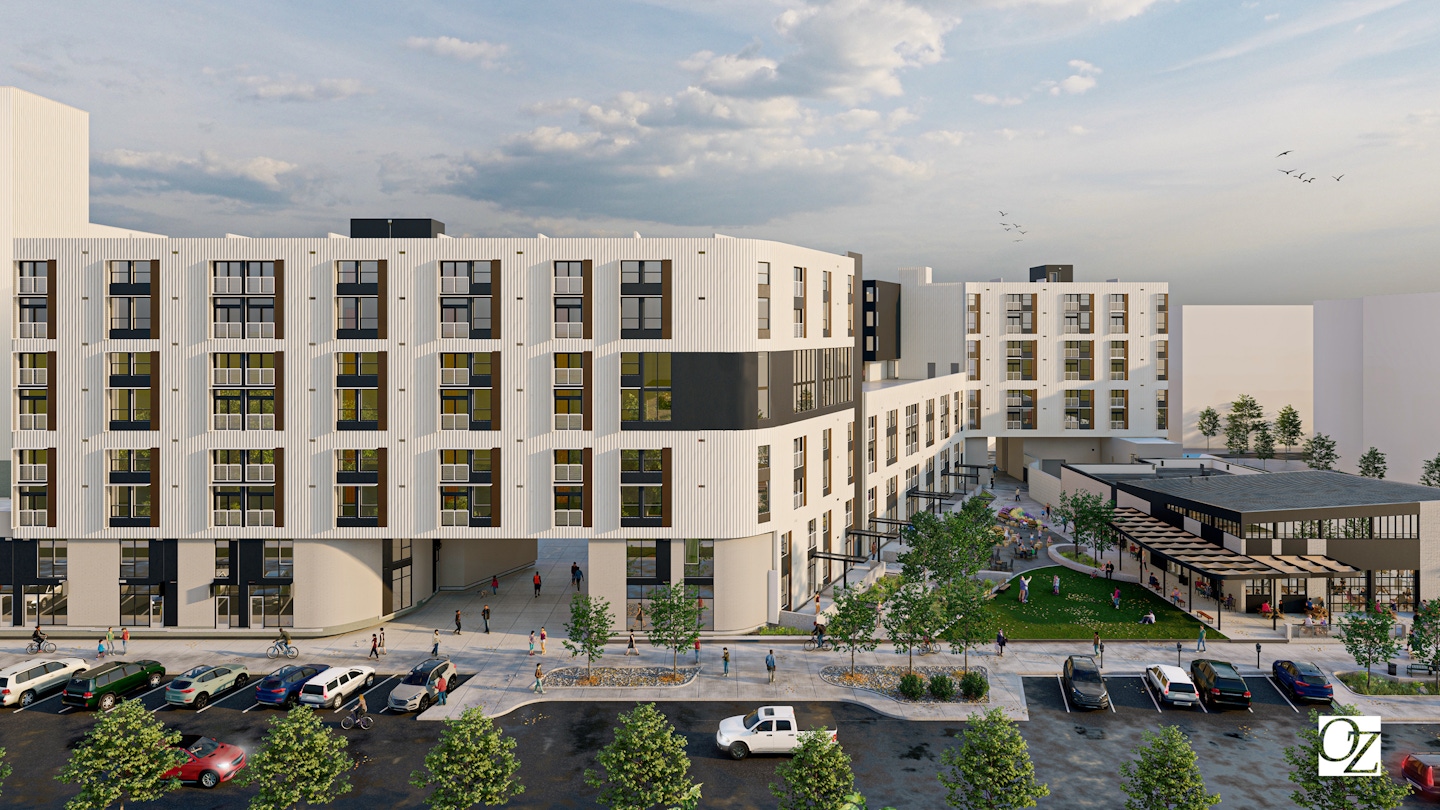Construction Inclusion Week 2022 is October 17-21. The goal of Construction Inclusion Week is to amplify awareness while celebrating diversity, equity, and inclusion (DEI) throughout the industry to spearhead change.
The OZ DEI Committee recently reached out to industry partners Turner Construction, Milender White, and Saunders Construction to discuss how DEI is playing a role in the construction industry.


Participants:
Chloe Bennion, Community & Citizenship Coordinator - Turner Construction
Albus Brooks, Vice President of Business Development & Public Affairs - Milender White
Teena Bergstrand, Senior Director of Marketing Strategy - Saunders Construction
OZ DEI Committee: How has increased attention to DEI impacted your work in the field or office?
Chloe: Maybe most notably, we are seeing DEI more and more as a component of safety. Safety includes psychological safety, and we can only accomplish our best work if everyone in the field can communicate openly, trust one another, and feel valued for who they are and what they bring to our team. It’s also no longer necessary to convince owners that DEI is a worthwhile investment on their projects. More and more clients are seeking a builder that is invested in the community, pursuing internal inclusive excellence, and engaging DEI best practices through all elements of their work.
Albus: We have seen a significant change in Minority hiring in Management positions and increase of women as well. Over the last 3 years that we have tracked this data, we have grown 20% with people of color and women in Management positions. We have implemented several new programs to continue these efforts – women in construction, inclusive builders, and partnered with community organizations to elevate the DEI efforts as well.
Teena: Our immediate impact across our field and office operations is increased awareness and calls to action toward a more respectful and inclusive culture. This impact is achieved through providing our team members with crucial training and empowering them to speak up on relevant topics or situations.

OZ DEI Committee: What do you see as the biggest challenge to attaining equity and justice in the built environment?
Chloe: This is a big question! The challenges in the built environment reflect the challenges in every area where we see disparities of access and outcome. The root causes are systemic, entrenched, and require us to constantly examine our actions and opportunities for impact. When we think about equity and inclusion in the built environment, we think about environmental justice, the need to build cleanly, and reduce the impact of building and waste on vulnerable communities. We also think about ensuring that the opportunities afforded us as a large builder are creating opportunities in the community where we’re building.
Construction is a traditional field with hierarchical structures. However, just as anyone on a Turner jobsite has stop-work authority if they see something unsafe, everyone is expected to look for ways we could improve equity. Our leadership is extremely receptive to—and solicitous of—those conversations. In every business unit, we have appointed Diversity Advocates from among early leaders in our company, whose role is to bring a DEI perspective to all leadership discussions. Not only does this bring important voices to the table that are often excluded, it is an opportunity to grow the next generation of diverse leaders.
Albus: Education. People are uneducated about equity issues and understand the actual barriers. If there is no education people are unwilling to change. We have made a big initiative in our company to train and educate our employees because we want them to be equipped and eager for this work. See example below:
MW DEI Statement: Milender White lives by the essential values of diversity and inclusion. That is why we recruit and retain a world-class team that reflects our society and the clients we serve. This requires intentional recruitment of historically under-represented minority groups within our industry ranging from the trades to executive leadership. Our diverse team members will bring creative approaches to building and leading. We will create an environment that is empowered and engaged, in our work and our communities. We will actively create a culture of equality, celebrating inclusion across race, gender, age, religion, nationality, identity, and all legally protected classifications. Milender White will maintain a workplace free from discrimination or inequitable treatment, where tolerance, creativity and unique perspectives are encouraged.
Teena: Right now, the biggest challenge is having a sense of progress. General awareness and initiatives are on the rise, while at the same time, situations that impact justice and equity seem to continue to be stifled throughout our industry. However, we know progress is never a finished product or destination. Progress is the forward movement towards a destination that is fluid. Equity and justice are sometimes situational and mean different things to different individuals. When stepping back and viewing DEI from a larger vantage, the rhythm of establishing awareness, creating initiatives, acting on the initiatives, and watching them become part of the DNA and fabric of a company takes more time than desired. Leadership can be risk averse to a fault on this topic, which can be a roadblock to the challenge of attaining equity and justice. When a company makes a stand, that is when the progress hits the gas pedal.
Read
more here:
https://www.constructioninclusionweek.com
https://equity.turnerconstruction.com
https://www.milenderwhite.com/white-paper-inclusive-development
https://www.saundersinc.com/about/corporate-responsibility-2/